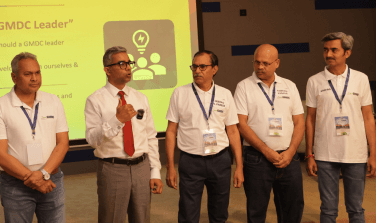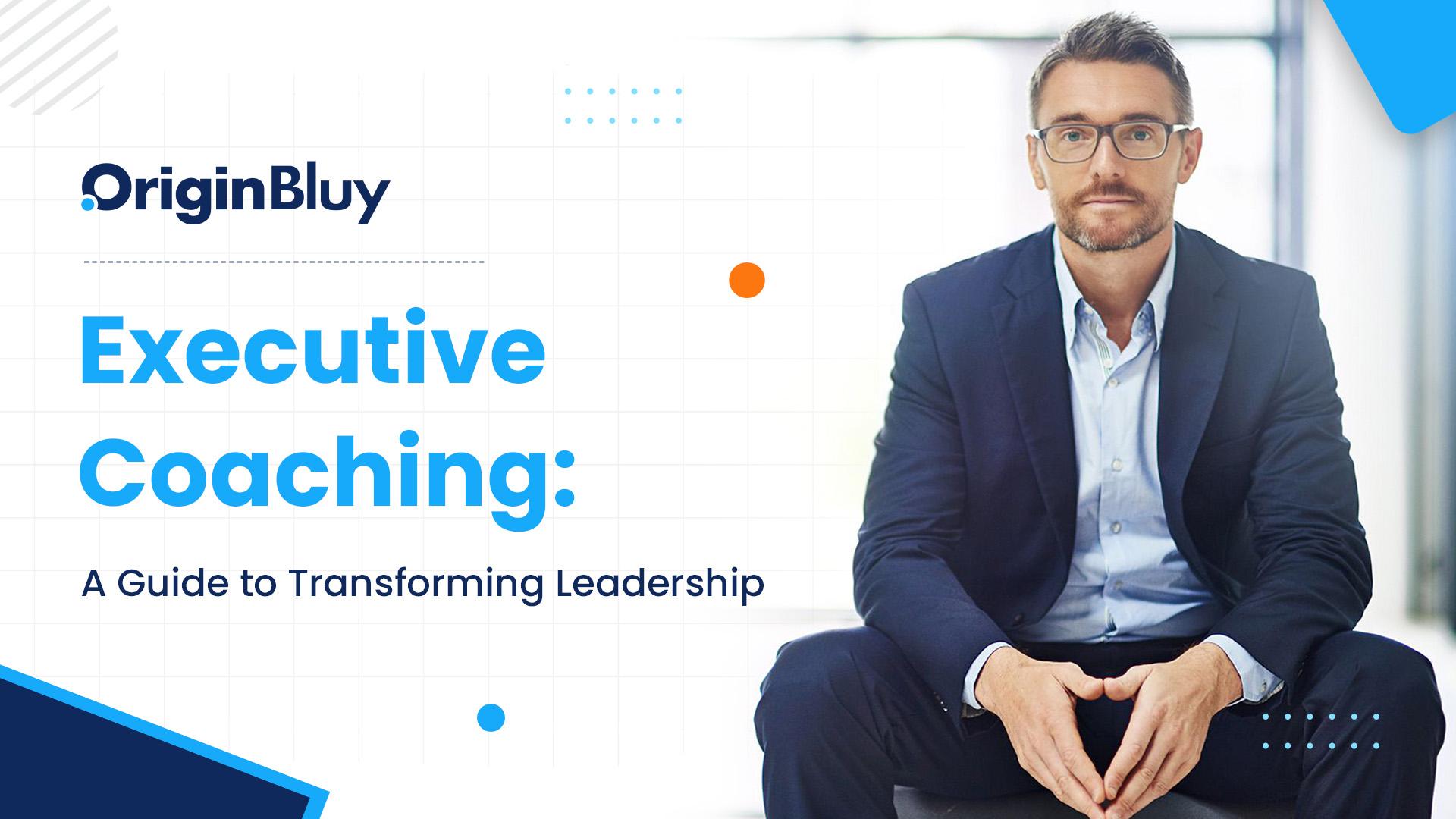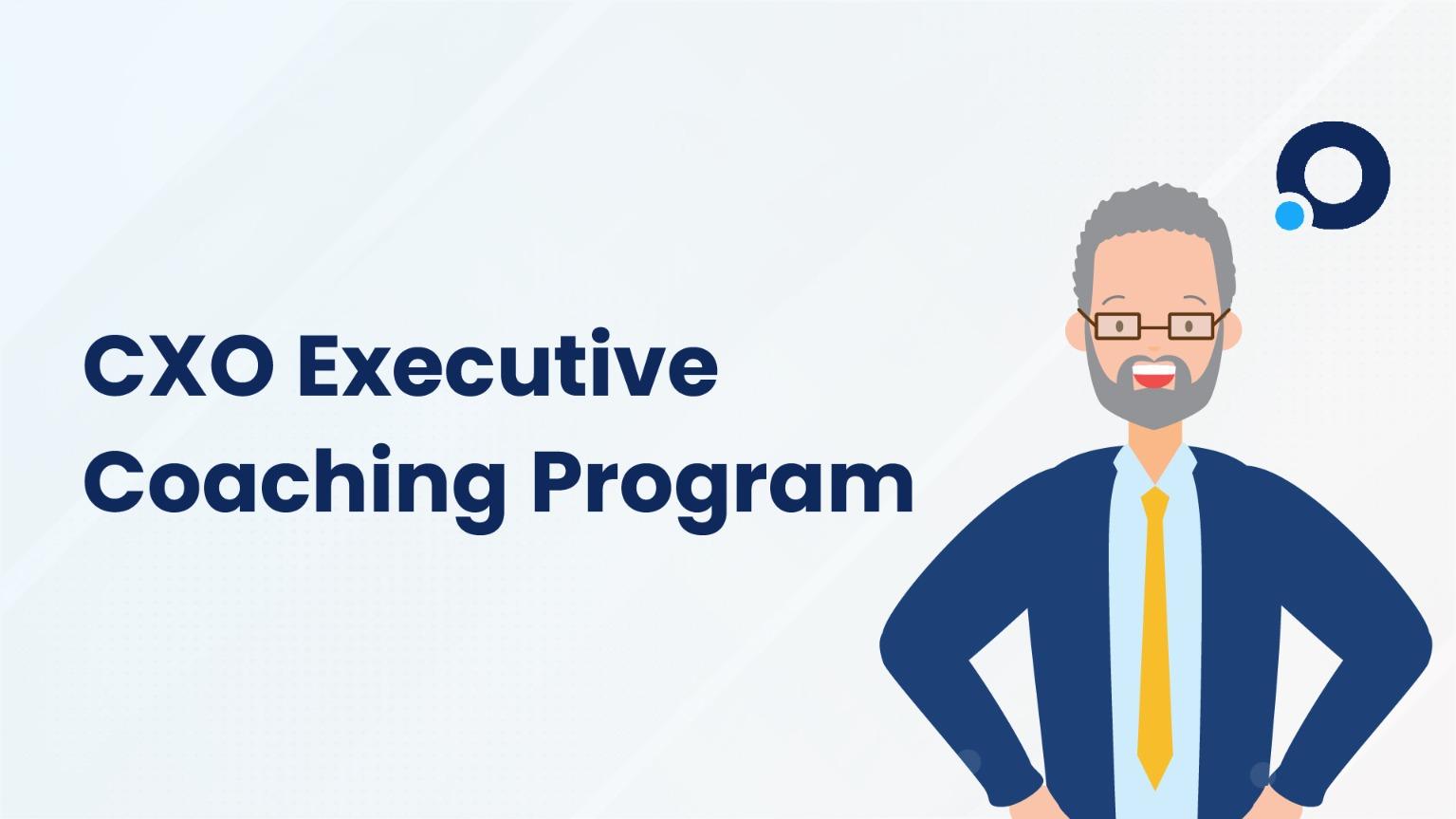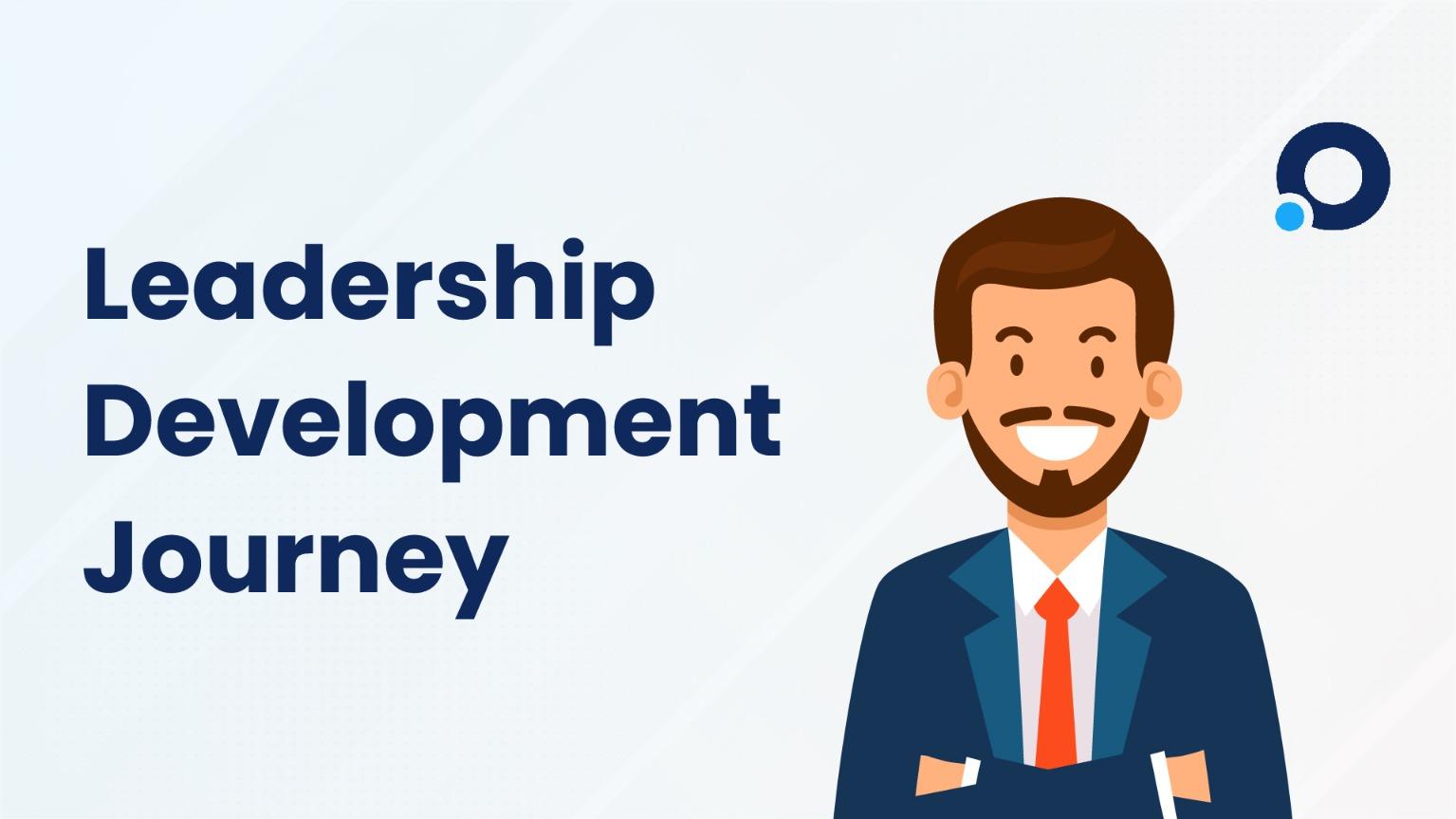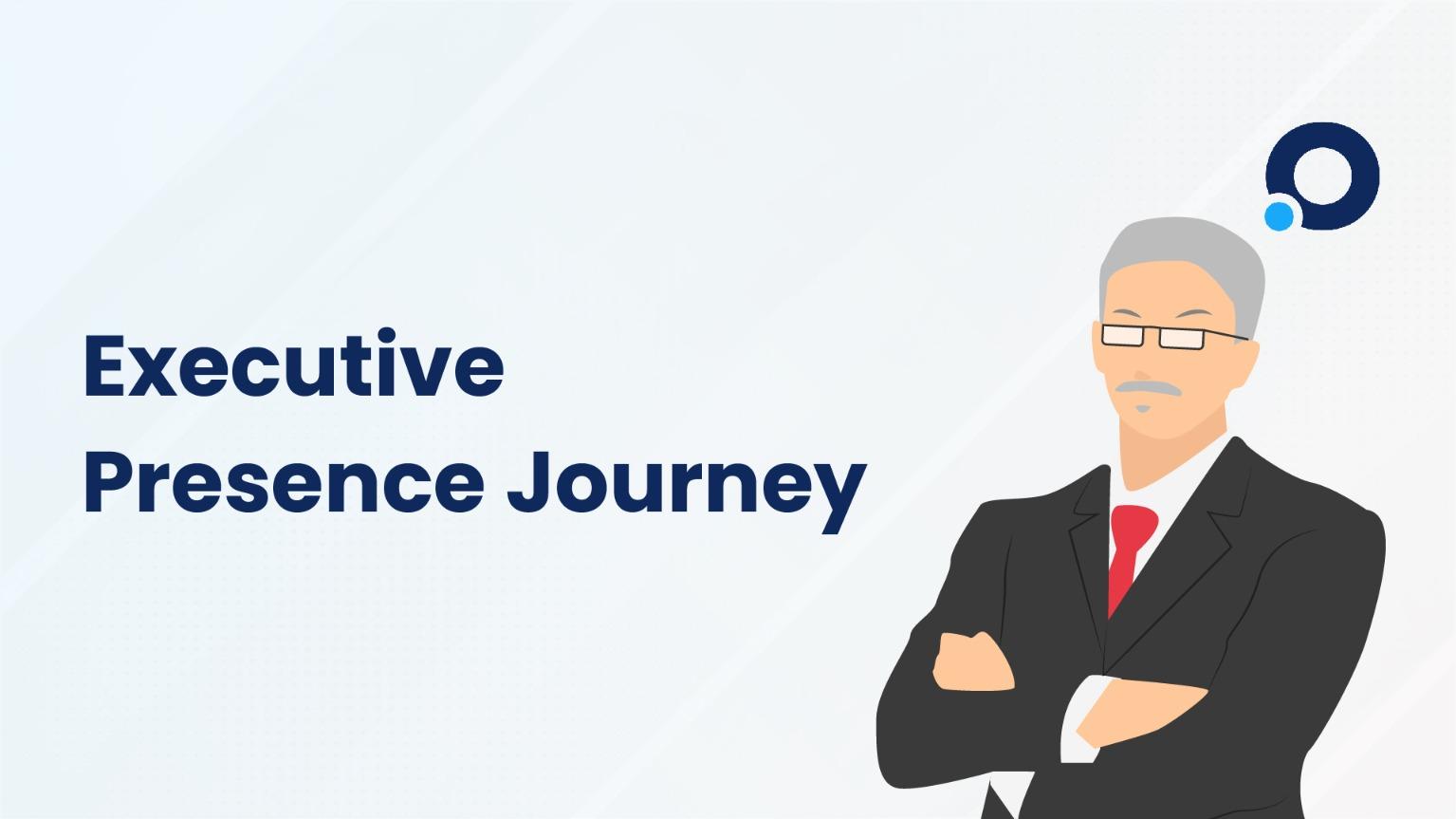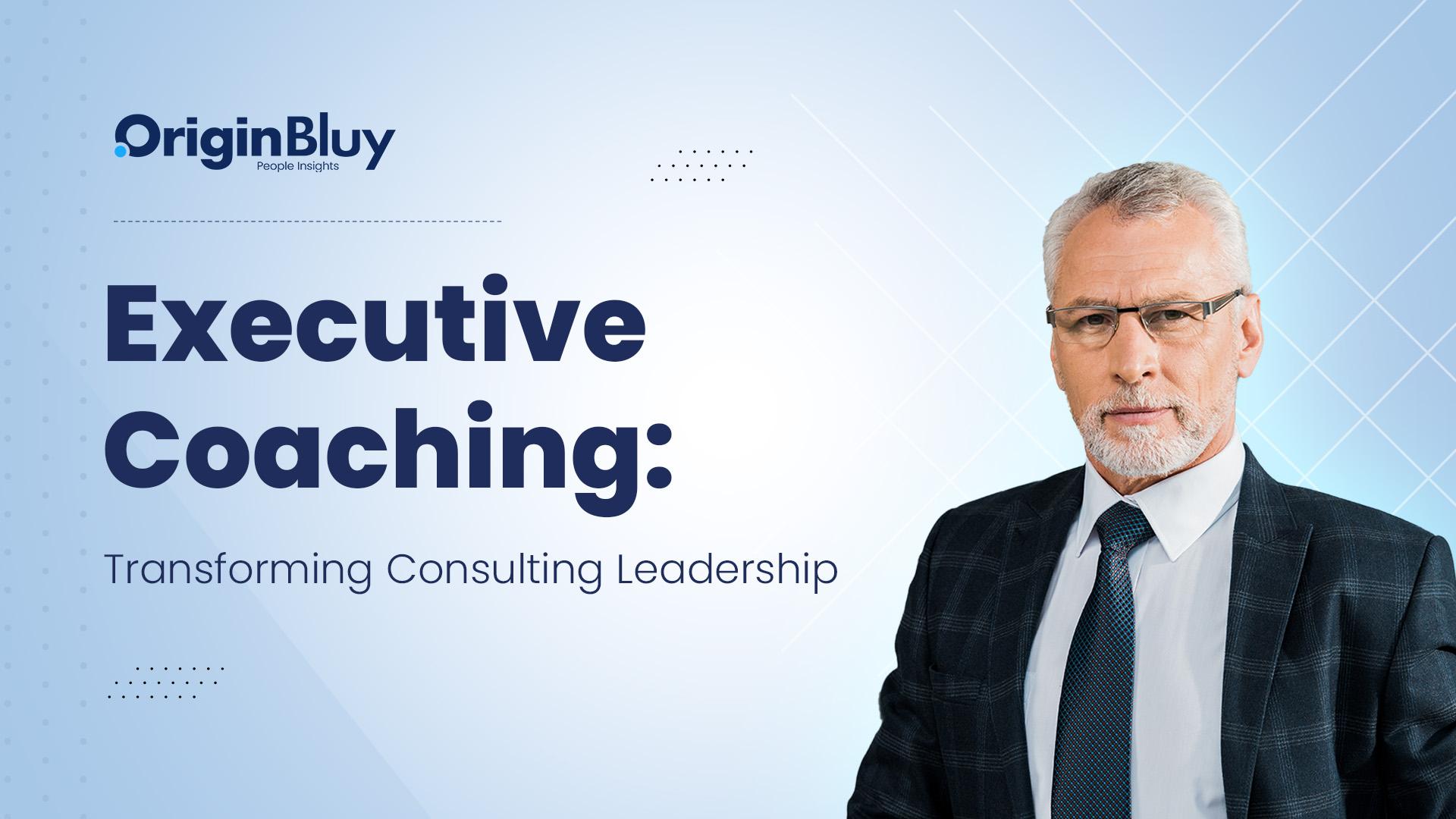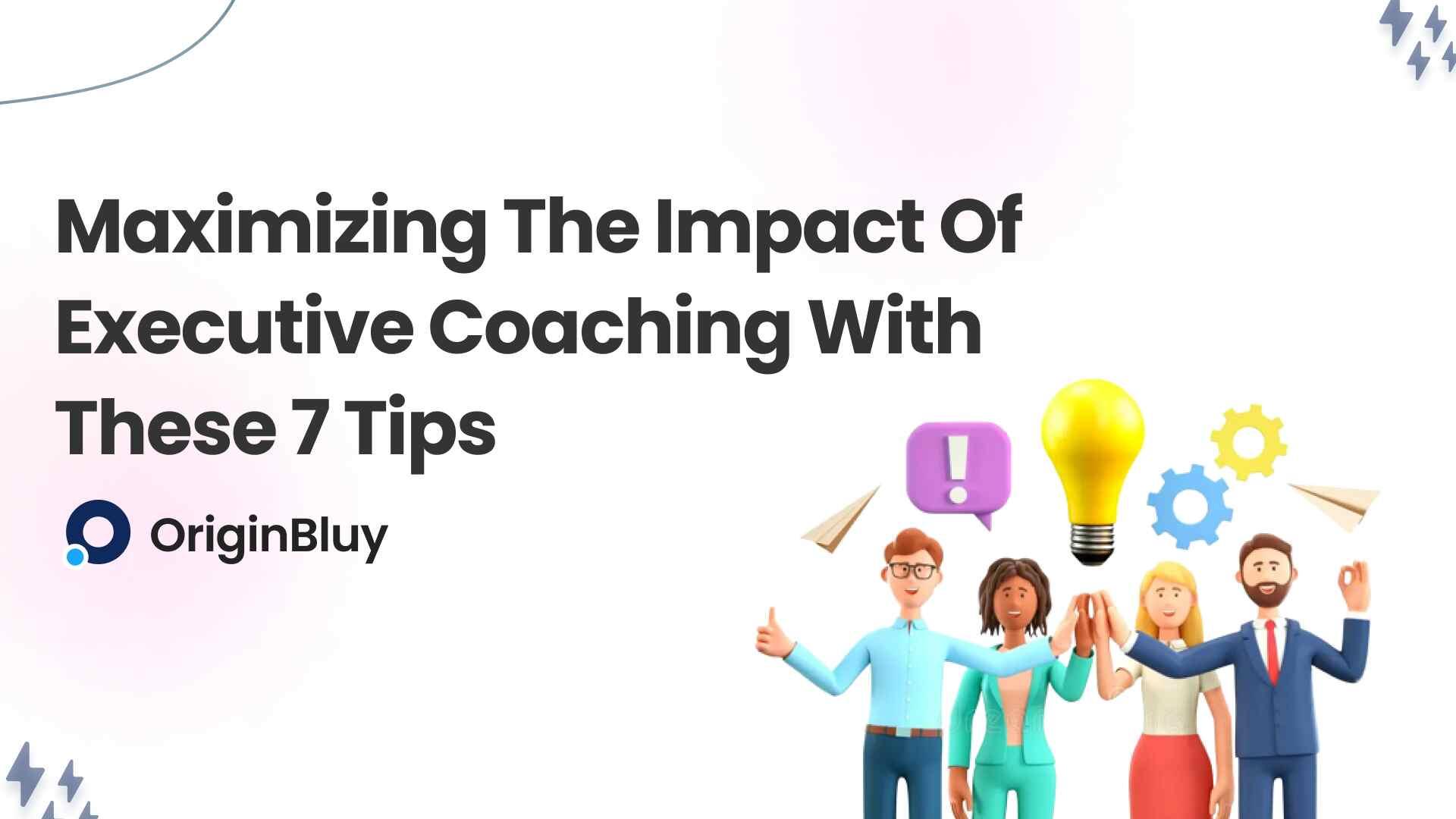Let us blow up your mind!
Executive coaching has an ROI of 788% in terms of employee retention and productivity, as found in a study conducted by Metrix Global.
With a number so large, companies are highly investing in their corporate programs. They wish to move the talent productivity curve of their organization toward constant growth.
With executive coaching,
Whether you're leading a small team or a big company, the right coaching can make a huge difference. It helps leaders see things differently, make smarter decisions, and set clearer goals.
This blog is all about unlocking the power of executive coaching for you and your organization. Here you will find answers to all essential questions related to coaching in an organization.
What is Executive Coaching?
To put it simply, executive coaching is helping the leadership in your organization with talent development for better results. This type of coaching includes all the skills essential for a leader to run the organization.
This includes everything from gravitas, communication, and physical appearance to decision-making, conflict resolution, and emotional intelligence.
Why Executive Coaching Works
It is a little difficult for an organization to go to its leadership and talk to them about skill gaps. With executive coaching, not only do the leaders identify their weaknesses, but also connect with executive coaches.
These coaches create a plan for each individual according to their needs and assist them in the process.
Executive coaching works because it offers a unique blend of feedback, development goals, and accountability. It addresses individual leadership challenges and organizational demands, fostering personal growth and business success.
5 Steps to Successful Coaching
Implementing an executive coaching program requires a strategic and thoughtful approach. Here are five key steps to set it up effectively:
Step 1: Defining Clear Objectives and Desired Outcomes
This is the first crucial step. This process involves identifying the specific challenges and opportunities your organization faces and what you hope to achieve through coaching.
Engage with stakeholders and potential coachees to ensure the program aligns with both organizational goals and individual development needs. Clear objectives give direction and purpose, making the coaching process more focused and effective.
Step 2: Selecting the Right Coaches
Selecting the ideal coaches that are aligned with your company is vital for the success of the program. The expertise, style, and experience of the coach can significantly impact the outcome.
Look for coaches with a strong track record, relevant industry experience, and positive feedback from previous clients. Assessing the compatibility between the coach and the executive through interviews or introductory sessions can help ensure a productive coaching relationship.
Step 3: Customizing Coaching For Individual Leaders
This step acknowledges that each leader has unique strengths, weaknesses, and learning styles. Developing individual coaching plans based on thorough assessments, such as personality tests and 360-degree feedback, allows for a more personalized and impactful approach.
Tailoring the frequency, duration, and focus of sessions to each leader's specific needs can lead to more meaningful and sustainable development.
Step 4: Establishing a Supportive Coaching Culture
Ensuring such an environment within the organization enhances the effectiveness of the program. Promoting the benefits of coaching, sharing success stories, and encouraging senior leaders to participate sets a positive precedent.
A culture that values continuous learning and development fosters open participation and maximizes the impact of coaching.
Step 5: Implementing Effective Monitoring and Feedback Mechanisms
An organization can ensure the coaching program remains on track and achieves its intended goals with this step. Regular check-ins with both the coach and coachee, goal tracking, session summaries, and periodic surveys are essential tools for monitoring progress. A clear line of communication for feedback allows for necessary adjustments and continuous improvement of the coaching plan.
By integrating these steps, an organization can successfully establish a robust executive coaching program, benefiting individual leaders and contributing to the overall success and growth of the company.
Different Modes of Executive Coaching
Various modes of executive coaching cater to different needs and preferences. Here's an exploration of four prominent modes:
1. Virtual Coaching
This has gained significant traction, especially in the wake of the global digital transformation. This mode involves coaching sessions conducted over video conferencing platforms, phone calls, or even through messaging.
Virtual coaching offers unparalleled flexibility, making it possible for busy executives to engage in coaching regardless of geographical constraints. It's particularly useful for organizations with a global presence or for leaders who travel frequently.
The key advantage of virtual coaching is its accessibility; however, it requires a certain level of tech-savvy and can sometimes lack the personal touch of face-to-face interactions.
2. One-on-One Coaching
One-on-one coaching is the traditional and most personalized mode of executive coaching. It involves private sessions between the coach and the executive, providing a safe and confidential environment for open discussion and personal development.
This mode of coaching is highly effective in addressing specific individual challenges and offering customized guidance and feedback.
One-on-one coaching allows for deep dives into personal leadership styles, behaviors, and impacts, facilitating profound personal and professional growth. The success of this mode depends on the relationship and trust built between the coach and the executive.
3. Group Sessions
Group coaching sessions bring together multiple leaders in a collaborative environment. These sessions can be beneficial for developing leadership teams, enhancing team dynamics, and fostering a shared understanding of organizational goals and challenges.
Group coaching provides a platform for peer learning and support. In these sessions, participants can share experiences, challenges, and insights. This mode encourages collective growth and can be particularly effective in building a cohesive leadership culture within an organization. However, it might not address individual-specific issues as deeply as one-on-one coaching.
4. Physical Coaching
Also known as in-person coaching, physical sessions involve face-to-face sessions, which can be conducted in various settings like an office, a retreat, or an outdoor location. This traditional form of coaching offers a more personal and connected experience, allowing for understanding through non-verbal cues and body language. Physical presence can enhance the depth and quality of interactions, making it easier to establish rapport and trust. This mode is particularly effective for intensive coaching interventions, such as executive retreats or workshops, where immersive experiences can lead to significant breakthroughs. The limitation, however, is the need for geographical proximity and the potential constraints it poses on scheduling.Each of these modes has unique strengths and can be chosen based on the specific needs and circumstances of the executive and the organization. A blended approach, combining different modes, is often the most effective way to leverage the benefits of each and cater to a diverse range of coaching needs.
How Can Executive Coaching Help
Executive coaching can be a transformative tool for leaders and organizations. Check out these five key ways in which it can make a significant impact:
- Enhancing Leadership Skills and Abilities
Executive coaching focuses on developing a range of leadership competencies, including strategic thinking, effective communication, and decision-making skills. Through personalized coaching sessions, leaders are encouraged to explore and refine their leadership styles and adapt to various situations.
At the same time, they learn how to better motivate and inspire their teams. Developing these core leadership skills is crucial for navigating the complex challenges of today’s business environment and driving organizational success.
- Improving Self-Awareness and Emotional Intelligence
One of the most profound benefits of executive coaching is the enhancement of self-awareness. Coaches help leaders understand their strengths, weaknesses, and blind spots. This awareness is vital for personal development and effective leadership.
Moreover, coaching often focuses on improving emotional intelligence—the ability to understand and manage one’s own emotions and empathize with others. The presence of emotional intelligence is linked to better leadership performance, healthier workplace relationships, and improved team dynamics.
- Facilitating Personal and Professional Growth
Executive coaching is not just about addressing immediate business challenges; it’s also about personal growth. Trainers work with leaders to set and achieve both professional and personal goals.
This holistic approach ensures that leaders are not only effective in their current roles but are also preparing for future challenges and opportunities. It’s about building a well-rounded, resilient leader who can adapt to and thrive in an ever-changing business landscape.
- Addressing Challenges and Enhancing Problem-Solving Skills
Every leader faces unique challenges, whether it’s managing a team, dealing with conflict, or navigating organizational change. Executive coaching provides a confidential and supportive space to explore these challenges.
Coaches offer fresh perspectives, tools, and strategies to tackle specific issues, fostering a more analytical and creative approach to problem-solving. This targeted support can lead to breakthroughs in areas where leaders may have previously felt stuck or overwhelmed.
- Building and Sustaining High-Performing Teams
Leadership is not just about individual performance; it’s also about the leader’s impact on their team. Executive coaching can help leaders understand team dynamics, recognize and leverage the strengths of team members, and foster a positive and productive work environment.
Coaches can guide leaders in building trust, facilitating effective communication, and aligning team efforts with organizational goals. A leader who is skilled in team management can drive performance, engagement, and innovation within their team.
Executive coaching offers a wealth of benefits, not only to the leaders who participate but also to their teams and organizations as a whole. By focusing on these key areas, coaching can lead to significant improvements in leadership effectiveness and organizational performance.
Who Should Hire an Executive Coach?
Wondering if your organization requires executive coaching? Let’s find out:
1. Emerging Leaders and High-Potential Employees
Individuals identified as high-potential employees or those stepping into leadership roles for the first time stand to gain immensely from executive coaching. These emerging leaders can develop their leadership skills, adapt to new responsibilities, and learn to navigate the complexities of managing teams and projects effectively.
Coaching provides them with the tools and confidence needed to transition smoothly into their new roles and set a strong foundation for their leadership journey.
2. Experienced Executives Facing New Challenges
Seasoned leaders who are encountering new challenges, such as leading a major change initiative, entering a new market, or dealing with a crisis, can benefit significantly from the insights and guidance of an executive coach.
These experienced professionals often need to refine their existing skills and adapt their strategies to meet the demands of these new situations. An executive coach can offer valuable perspectives and strategies to navigate these challenges successfully.
3. Leaders in Need of Objective Feedback
Top executives and senior leaders, who might not receive candid feedback within their organizations, can rely on executive coaches for unbiased, honest assessments.
Coaches provide a safe space for these leaders to explore their strengths and weaknesses, understand their impact on others, and identify areas for improvement. This objective feedback is essential for continuous personal and professional development.
4. Executives Looking to Enhance Specific Skills
Even highly successful leaders have areas where they can improve. However, it gets difficult for organizations to help them identify those gaps. Whether it’s honing communication skills, developing better team management techniques, or enhancing strategic thinking, executive coaching offers targeted development in specific areas.
Tailored coaching sessions can address these specific needs, helping leaders refine their skills and become more effective in their roles.
5. Leaders Seeking Personal Growth and Work-Life Balance
Executive coaching isn’t only about professional development; it’s also about personal growth and finding a healthy work-life balance. Leaders grappling with the pressures of high-stress roles can learn strategies for managing stress, enhancing resilience, and finding fulfillment both in and out of the workplace.
Coaching can provide the support and tools necessary for leaders to maintain a balanced and healthy lifestyle while excelling in their careers.
In essence, executive coaching is suitable for a wide range of professionals across various stages of their careers. From emerging leaders to seasoned executives, anyone who is committed to personal and professional growth can benefit from the tailored guidance and support that an executive coach provides.
Understanding the Executive Coaching Process
The executive coaching process is a structured yet flexible framework designed to facilitate personal and professional growth in leaders.
Here’s a deeper look into this transformative journey:
Initial Assessment and Goal Setting
The coaching process typically begins with an initial assessment to identify the leader's current strengths, challenges, and areas for improvement. This phase often involves tools like personality assessments, 360-degree feedback, or in-depth interviews.
Based on this assessment, specific and measurable goals are set for the coaching engagement. These goals align with both the individual's personal development objectives and the organization's strategic priorities.
Developing a Customized Coaching Plan
Once the goals are identified, the coach and the executive work together to develop a tailored coaching plan. This plan outlines the key focus areas, methodologies to be used, and expected outcomes.
The plan is dynamic and may evolve as coaching progresses, allowing for flexibility and adaptation to the leader's growth and changing circumstances.
Ongoing Coaching Sessions
The core of the coaching process is the ongoing sessions between the coach and the executive. These sessions are typically held regularly over a period of several weeks.
During these sessions, the coach uses various techniques, such as questioning, active listening, and challenging assumptions, to facilitate the leader's self-reflection and learning. The coach provides guidance, support, and accountability, helping the leader to explore new perspectives, develop new strategies, and implement changes.
Application and Reflection
Between coaching sessions, executives are encouraged to apply their learnings to their day-to-day work. This practical application is crucial for translating insights into tangible improvements in leadership behavior and effectiveness.
The coach and the executive often review these applications in subsequent sessions, reflecting on successes, challenges, and lessons learned.
Monitoring Progress and Making Adjustments
Throughout the coaching engagement, progress toward the set goals is continuously monitored. This monitoring can include formal methods like follow-up assessments and informal check-ins.
Based on this feedback, adjustments are made to the coaching plan as necessary to ensure that it remains relevant and effective.
Concluding the Coaching Engagement
The coaching process concludes with a final evaluation of the progress made toward the initial goals. This phase involves reflecting on the learning journey, celebrating achievements, and discussing strategies for sustaining the changes made.
The conclusion also often includes planning for ongoing development beyond the formal coaching engagement.
The executive coaching process is a comprehensive and personalized journey that focuses on achieving specific leadership development goals. It is a collaborative, reflective, and action-oriented process that leads to significant personal and professional growth for leaders.
Finding the Ideal Executive Coach
Finding the right coach is a critical component of a successful executive coaching program. Here are steps and considerations for identifying ideal coaches for your organization:
Define Coaching Requirements Based on Organizational Needs
Start by understanding the specific needs of your organization and its leaders. What are the key challenges? What skills or competencies need to be developed?
This clarity helps in seeking coaches who specialize in these areas. Consider factors like industry experience, areas of expertise (such as leadership development, change management, or communication skills), and any unique challenges specific to your organization.
Look for Accreditation and Relevant Experience
Prioritize coaches with recognized certifications from reputable coaching institutions. These credentials are a testament to their commitment to professional coaching standards. Additionally, consider their professional background and experience.
A coach with a history in similar business environments or who has tackled similar challenges can bring valuable insights and understanding.
Assess Coaching Philosophy and Style
Every coach has a unique coaching style and philosophy. Some may take a more directive approach, while others might be more exploratory. It's important to match this with the preferences and learning styles of your executives.
Often, a preliminary meeting or a trial session can help assess compatibility in terms of coaching style and personality.
Seek Recommendations and Check References
Personal recommendations from other businesses or industry peers can be incredibly valuable. Ask for references and speak to former clients to understand their experience with the coach.
This firsthand feedback can provide insights into the coach’s effectiveness and its impact on leadership development.
Consider Logistics and Availability
Practical considerations such as availability, location, and flexibility are also important. For instance, if your organization prefers face-to-face coaching sessions, a local coach might be ideal.
On the other hand, if your leaders are spread across different locations, a coach who offers virtual sessions would be more suitable.
Look for a Coach Who Aligns with Organizational Values
It’s important that the coach understands and aligns with your organization's culture and values. This alignment ensures that the coaching interventions are not just effective at an individual level but also beneficial for the organization as a whole.
By following these steps, you can identify coaches who are not just qualified but also a good fit for your organization's unique needs and culture. The right coach can make a significant difference in the effectiveness of your executive coaching program and its overall growth.
Demand For Executive Coaching In India
The demand for executive coaching in India has grown significantly, driven by various factors. Here are five key points highlighting this trend:
1. Alignment with Global Business Practices
As Indian companies increasingly operate on a global scale, the need for leaders who understand and align with international business practices has reached an inflection point.
According to the International Coach Federation, Indian companies invest $1.38 billion annually in executive coaching to prepare these leaders for navigating diverse business environments effectively.
2. Young Workforce Demanding Progressive Leadership
With millennials and Gen Z forming a significant portion of India's workforce, there's a strong demand for leadership that is dynamic, empathetic, and tech-savvy. These young professionals prefer leaders who act as mentors and coaches, not just authoritative figures.
This shift necessitates executive coaching to develop these leadership qualities, with an estimated 54% growth in the number of coaches globally since 2019 catering to this demand.
3. Emphasis on Digital Leadership
The digital transformation across sectors demands leaders who are not only technologically adept but also capable of leading digital initiatives and innovation.
Executive coaching is increasingly focused on developing these digital leadership skills, with a growing number of programs specifically designed for this purpose.
4. Corporate Focus on Leadership Development for Business Growth
Recognizing the crucial role of effective leadership in driving performance and innovation, Indian companies are investing more in leadership development as a strategic initiative. Executive coaching is emerging as a key tool in this investment, with a survey by the Coach Foundation revealing that 99% of individuals and companies coached are satisfied with the outcomes.
5. Rise in Entrepreneurship and Start-Up Culture
India's rapidly expanding start-up ecosystem has fostered a new generation of entrepreneurs seeking executive coaching. These leaders often come from diverse backgrounds and require support in developing skills in leadership, business management, and strategic planning.
Executive coaching provides them with the guidance and tools needed to navigate the challenges and opportunities of the entrepreneurial landscape.
These factors collectively contribute to the rising demand for executive coaching in India, reflecting a shift in how leadership development is perceived and valued in the evolving corporate landscape.
Unleash Leadership Excellence: The Power of Executive Coaching
Executive coaching has emerged as a pivotal force in shaping the leaders of today and tomorrow, especially in the dynamic and diverse landscape of India. From enhancing leadership skills and emotional intelligence to addressing specific challenges and building high-performing teams, executive coaching offers a multitude of benefits.
It caters to a wide range of professionals, including emerging leaders, experienced executives, and those in need of objective feedback. The executive coaching process is a transformative journey, adaptable to various modes like virtual, one-on-one, and group sessions.
With the increasing demand in India, driven by globalization, a young workforce, digital transformation, and a burgeoning start-up ecosystem, executive coaching is no longer just an option but a necessity for businesses aiming for sustained growth and success.
Are you ready to unleash the full potential of your leadership team?
Contact us today to explore our executive coaching programs, designed to meet the unique challenges and opportunities of your organization.
Key Takeaways From the Blog:
- Impressive ROI on executive coaching
- Customized coaching is the key
- Demand for executive coaching in India is booming
- Suitable to a diverse audience
- Various coaching modes to pick from






